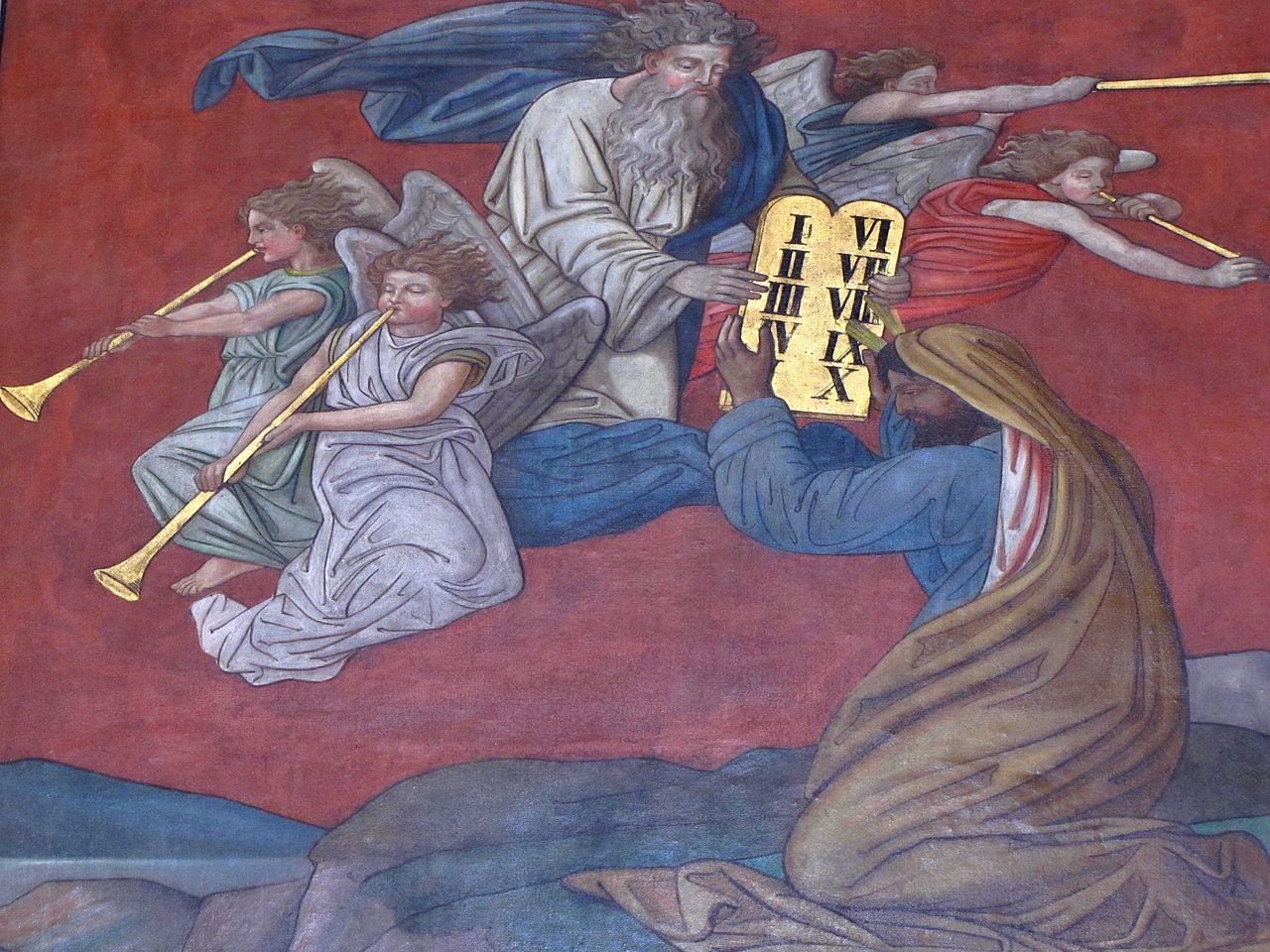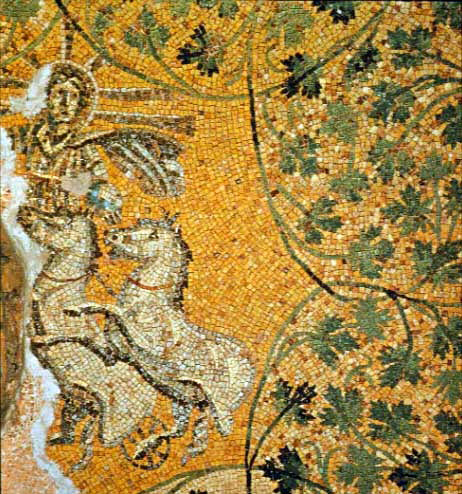 |
| Ravenna, c6th |
Vulgate
|
Douay-Rheims
|
Psalmus David.
|
A psalm for David
|
Dómine, quis
habitábit in tabernáculo tuo? * aut quis requiéscet in monte sancto tuo?
|
Lord, who shall dwell in your
tabernacle? Or who shall rest in your holy hill?
|
2 Qui
ingréditur sine mácula, * et operátur justítiam
|
He that walks without blemish,
and works justice
|
3 Qui lóquitur
veritátem in corde suo, * qui non egit dolum in lingua sua :
|
He that speaks truth in his
heart, who has not used deceit in his tongue
|
4 Nec fecit próximo
suo malum, * et oppróbrium non accépit advérsus próximos suos.
|
Nor has done evil to his
neighbour: nor taken up a reproach against his neighbours.
|
5 Ad níhilum
dedúctus est in conspéctu ejus malígnus: * timéntes autem Dóminum gloríficat
|
In his sight
the malignant is brought to nothing: but he glorifies them that fear the Lord.
|
6 Qui jurat próximo
suo, et non décipit, + qui pecúniam suam non dedit ad usúram, *et múnera
super innocéntem non accépit.
|
He that swears
to his neighbour, and deceives not; he that has not put out his money to usury,
nor taken bribes against the innocent:
|
7
Qui facit hæc: * non movébitur in ætérnum.
|
He that does these things, shall
not be moved for ever
|
St Augustine:
Tabernacle is taken in its proper meaning, it is a thing of war. Hence soldiers are called tent-fellows, as having their tents together. For we war with the devil for a time, and then we need a tabernacle wherein we may refresh ourselves. Holy mountain signifies the eternal habitation itself, the super-eminence of the love of Christ in life eternal.St Benedict (Prologue to the Rule):
Let us, therefore, gird our loins with faith and the performance of good works, and following the guidance of the Gospel walk in his paths, so that we may merit to see him who has called us unto his kingdom. And, if we wish to dwell in the tabernacle of his kingdom, except we run thither with good deeds we shall not arrive. But let us ask the Lord with the prophet: Lord, who shall dwell in thy tabernacle, or who shall rest upon thy holy hill? Then, brethren, let us hear the Lord answering and showing us the way to that tabernacle and saying: He that walketh without blemish and doth that which is right; he that speaketh truth in his heart, who hath used no deceit in his tongue, nor done evil to his neighbour, nor believed ill of his neighbour. He that taketh the evil spirit that tempteth him, and casteth him and his temptation from the sight of his heart, and bringeth him to naught; who graspeth his evil suggestions as they arise and dasheth them to pieces on the rock that is Christ. Such men as these, fearing the Lord, are not puffed up on account of their good works, but judging that they can do no good of themselves and that all cometh from God, they magnify the Lord's work in them, using the word of the prophet: Not unto us, 0 Lord, not unto us, but unto thy name give the glory. So the apostle Paul imputed nothing of his preaching to himself, but said: By the grace of God I am what I am. And again he saith: He that glorieth, let him glory in the Lord.St Thomas Aquinas:
Here, he treats of proper justice. He consults with God, like a priest standing in God's presence, he first poses a question, and then offers an explanation, at, He who enters without blemish. So, he puts forth two questions because of the two-fold status of the Church, that is, in the here and now, and in the future. The first refers to the Church as it struggles on this earth, the Church Militant. By the tabernacle is designated the Church as it struggles on this earth, and by the temple on the mount, the state of its future life.St Alphonsus Liguori:
This psalm presents the portrait of a worthy minister of the altar, and at the same time that of the predestined soul, who also will have the happiness of being admitted for all eternity into the heavenly country.


